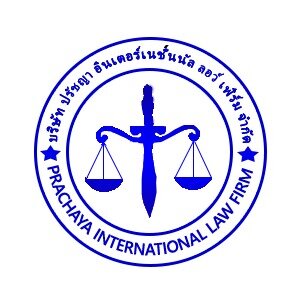Best Hiring & Firing Lawyers in Huai Khwang
Share your needs with us, get contacted by law firms.
Free. Takes 2 min.
List of the best lawyers in Huai Khwang, Thailand
About Hiring & Firing Law in Huai Khwang, Thailand
Hiring and firing employees in Huai Khwang, a vibrant district of Bangkok, is governed by Thai labor law. Whether you are an employer or an employee, understanding these legal frameworks is crucial to ensuring rights are respected and obligations are met. Thai labor laws provide rules that protect both employees and employers, covering contracts, probation, termination procedures, severance payments, and employee rights. Local custom and the influence of various industries in Huai Khwang can also shape workplace practices, making it essential to be aware of your legal standing before entering or ending any employment relationship.
Why You May Need a Lawyer
Legal support can be invaluable when dealing with hiring and firing matters in Huai Khwang. Common situations where people require legal help include:
- Drafting clear employment contracts to avoid future disputes
- Navigating terminations to ensure compliance with legal requirements
- Addressing wrongful dismissal claims
- Ensuring proper severance compensation
- Handling disputes over probation periods or performance reviews
- Managing layoffs during business restructuring
- Interpreting Thai labor laws accurately in multilingual workplaces
- Facilitating negotiations or settlement agreements
- Assisting with work permits and employment of foreign workers
A lawyer with expertise in local labor law can help you avoid costly mistakes and ensure that your interests are protected throughout the employment relationship.
Local Laws Overview
The main legislation governing employment relationships in Huai Khwang and throughout Thailand is the Labor Protection Act (LPA). This law establishes fundamental employment standards such as minimum wage, working hours, overtime, holidays, and leave entitlements. When it comes to hiring, employers must provide written contracts outlining job duties, wages, and conditions, although oral agreements are also recognized. For terminating employment, the law outlines specific procedures for both dismissal with cause and without cause. Employees dismissed without cause are typically entitled to advance notice and severance pay, the amount of which depends on their length of service. Employers must ensure terminations are supported by fair reasons and due process, as unlawful dismissal can result in additional compensation or reinstatement orders. Special provisions apply to the employment and termination of foreign workers, who must have valid work permits in Huai Khwang.
Frequently Asked Questions
What rights do employees have when they are hired in Huai Khwang?
Employees are protected by statutory rights such as a minimum wage, defined working hours, weekly rest days, and written or clear oral contracts describing the scope of work, compensation, and benefits.
Can an employer terminate an employee without cause?
Yes, employers can terminate employees without cause but must provide advance written notice and pay severance based on the employee's length of service as required by the Labor Protection Act.
What is considered a fair reason for dismissal?
Fair reasons include gross misconduct, dishonesty, negligence resulting in loss, criminal offenses, or serious violation of company policies. Documented evidence and proper procedure are essential.
How much severance pay is due after termination?
Severance pay in Huai Khwang depends on the length of service, ranging from 30 days’ wages for employment over 120 days to a maximum of 400 days’ wages for over 20 years of service.
Are probation periods legal and how long can they last?
Yes, probation periods are legal and typically last up to 119 days. If an employee continues working after probation, they become entitled to statutory benefits and protections.
What steps should an employee take if they believe they were wrongfully terminated?
Employees should gather relevant documentation and consult with a labor lawyer or the local labor office to file a complaint. The matter may be resolved through mediation or the labor courts.
Can foreign workers be hired and fired under the same rules?
Foreign workers require valid work permits and must comply with additional regulations. Their hiring and termination follow Thai labor law but any immigration rules must also be observed.
What obligations do employers have upon firing an employee?
Employers must provide a termination letter, pay out any outstanding wages, pay severance where relevant, and ensure contributions to social security are up to date.
How can disputes over hiring and firing be resolved?
Disputes are often resolved through negotiation, mediation at the labor office, or adjudication by the labor court if no agreement is reached.
Are there any special protections for certain groups of employees?
Yes, certain groups such as pregnant employees, union representatives, and those on sick leave have additional protections and cannot be dismissed except under specific and justified circumstances.
Additional Resources
If you need assistance or additional information regarding hiring and firing in Huai Khwang, you can turn to the following resources:
- Bangkok Labor Protection and Welfare Office - provides advice and mediation services for labor disputes
- Ministry of Labour - offers detailed guides about employee rights and employer obligations
- Legal Aid offices - supply free or low-cost legal support for individuals facing employment issues
- Thai Bar Association - can refer you to qualified lawyers specializing in labor law
- Embassies and consulates - often assist foreigners with work permit and employment disputes
Next Steps
If you are facing a hiring or firing issue in Huai Khwang, start by documenting all relevant employment details and communication. Reach out to a local lawyer with experience in Thai labor law to review your case and inform you of your rights and options. You can also contact the local labor office for initial guidance or mediation. Taking early legal advice can help you resolve matters efficiently, protect your rights, and minimize long-term risks or costs. Ensure you act quickly, as some claims or appeals under labor law must be filed within certain time limits.
Lawzana helps you find the best lawyers and law firms in Huai Khwang through a curated and pre-screened list of qualified legal professionals. Our platform offers rankings and detailed profiles of attorneys and law firms, allowing you to compare based on practice areas, including Hiring & Firing, experience, and client feedback.
Each profile includes a description of the firm's areas of practice, client reviews, team members and partners, year of establishment, spoken languages, office locations, contact information, social media presence, and any published articles or resources. Most firms on our platform speak English and are experienced in both local and international legal matters.
Get a quote from top-rated law firms in Huai Khwang, Thailand — quickly, securely, and without unnecessary hassle.
Disclaimer:
The information provided on this page is for general informational purposes only and does not constitute legal advice. While we strive to ensure the accuracy and relevance of the content, legal information may change over time, and interpretations of the law can vary. You should always consult with a qualified legal professional for advice specific to your situation.
We disclaim all liability for actions taken or not taken based on the content of this page. If you believe any information is incorrect or outdated, please contact us, and we will review and update it where appropriate.











